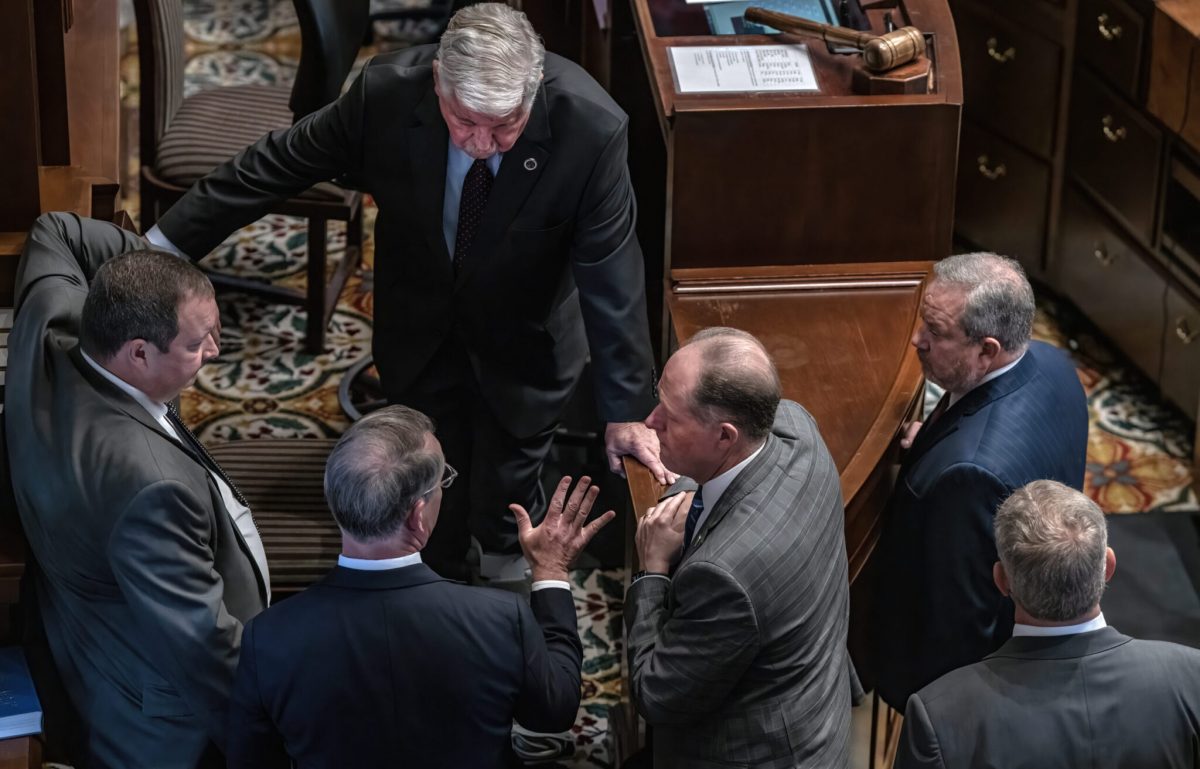A Nashville resident is seeking an expedited ruling by the Tennessee Supreme Court after the state challenged a three-judge panel decision that found state Senate redistricting maps unconstitutional.
Simultaneously, a West Tennessee resident is appealing the judicial panel’s finding that the House redistricting plan approved in early 2022 withstood constitutional muster. The challenge by Trenton resident Gary Wygant also seeks an expedited ruling by the state’s highest court.
Attorneys for Francie Hunt, a Nashville resident and executive director of Tennessee Advocates for Planned Parenthood, filed a request Tuesday asking the court to move quickly in her case against the Senate redistricting map. Otherwise, if the appeal proceeds on its regular schedule, Tennessee voters will vote again in Senate districts the trial court has found twice to violate the Tennessee Constitution, according to the filing.
The state Attorney General’s main argument in the challenge of the judicial panel’s ruling is that Hunt doesn’t have standing to sue to overturn the Senate redistricting maps, which contain non-consecutive numbered Senate districts 17, 19, 20, and 21 in Davidson County, a violation of the state Constitution. Counties with multiple Senate districts are required to be consecutively numbered so the entire delegation or majority of the delegation can’t be replaced in one fell swoop.
Hunt resides in District 17, which is represented by Sen. Mark Pody, (R-Lebanon).
Attorney General Jonathan Skrmetti filed a motion Tuesday asking the court to reject Hunt’s request, arguing the Supreme Court is likely to reverse the lower court’s finding because she has no standing to sue.
“Absent a stay, the state will be irreparably harmed because it cannot enforce a duly enacted law and because the General Assembly must either abandon the Senate map that it drew or cede its sovereign map-drawing authority to the judiciary,” Skrmetti’s filing says.
There’s not really any dispute about whether the maps comply with the Constitution. They don’t.
– Sen. Jeff Yarbro, D-Nashville
Meanwhile, Wygant filed a notice of appeal November 29 and requested an expedited decision December 1. In addition, he asked the court to separate the House and Senate cases “to avoid subjecting” voters to a second election in Senate districts found to be unconstitutional. Wygant challenged the House map, claiming it split 30 counties, more than necessary to reapportion 99 House districts.
The state responded to Wygant’s filing Tuesday with a move to negate it, saying he has not shown “good cause” to suspend the normal schedule, especially since there is no need for “new map” because it was found constitutional.
Democrats contend controlling Republicans, who hold supermajorities in the House and Senate, gerrymandered the districts to keep control.
The three-judge panel ruled against Wygant and found the House redistricting maps constitutional but determined the Senate maps to be unconstitutional and ordered the Senate to draw new maps by January 31.
“There’s not really any dispute about whether the maps comply with the Constitution. They don’t,” state Sen. Jeff Yarbro (D-Nashville) said Tuesday. “We should pass maps that comply with the Constitution rather than seek to not be subject to it. The state shouldn’t be in the business of finding immunity from constitutional violations for itself.”
Gov. Bill Lee signed the Senate and House maps into law on February 6th, 2022, two months before the April 7 qualifying deadline for Senate candidates. On April 6, the trial court enjoined the Senate map and extended the candidate qualifying deadline to May 5, while giving the legislature 15 days to approve a remedial Senate map.
The state sought an extraordinary appeal the following day when a spokesperson said, “While Lt. Gov. [Randy] McNally remains confident the appeal will be successful, the Senate will work on an alternative map so that it can be passed in the allotted time frame, if it becomes necessary.”
At trial a year later, an expert testified that the constitutional problems with the Senate map could be “cured” by changing fewer than five Senate districts. The plaintiffs’ court filing contends the General Assembly can work on changes to a “remedial map” this December and January so it can be enacted by early February.
Chancellor Russell T. Perkins of Davidson County and Circuit Judge J. Michael Sharp of Bradley County ruled against the Senate map while Chancellor Steven W. Maroney of Jackson found Hunt didn’t have standing to sue because there is “no demonstrable causal connection” between Hunt’s “generalized grievances” and non-consecutive Senate districts in Davidson County.
Hunt testified during trial that she was affected by a “dishonoring of the Constitution” with the way Roe v. Wade was overturned as well as the enactment of a “trigger ban” by the legislature on abortion rights in Tennessee.
McNally spokesman Adam Kleinheider said Tuesday the lieutenant governor is “optimistic” the state’s appeal will succeed because of Maroney’s “compelling dissent.”
“If a redraw becomes necessary, the Senate will follow an open and transparent process similar to those in previous years. At the moment, however, the main focus is on the appeal,” he said.
Tennessee Lookout is part of States Newsroom, a network of news bureaus supported by grants and a coalition of donors as a 501c(3) public charity. Tennessee Lookout maintains editorial independence. Contact Editor Holly McCall for questions: info@tennesseelookout.com. Follow Tennessee Lookout on Facebook and Twitter.
